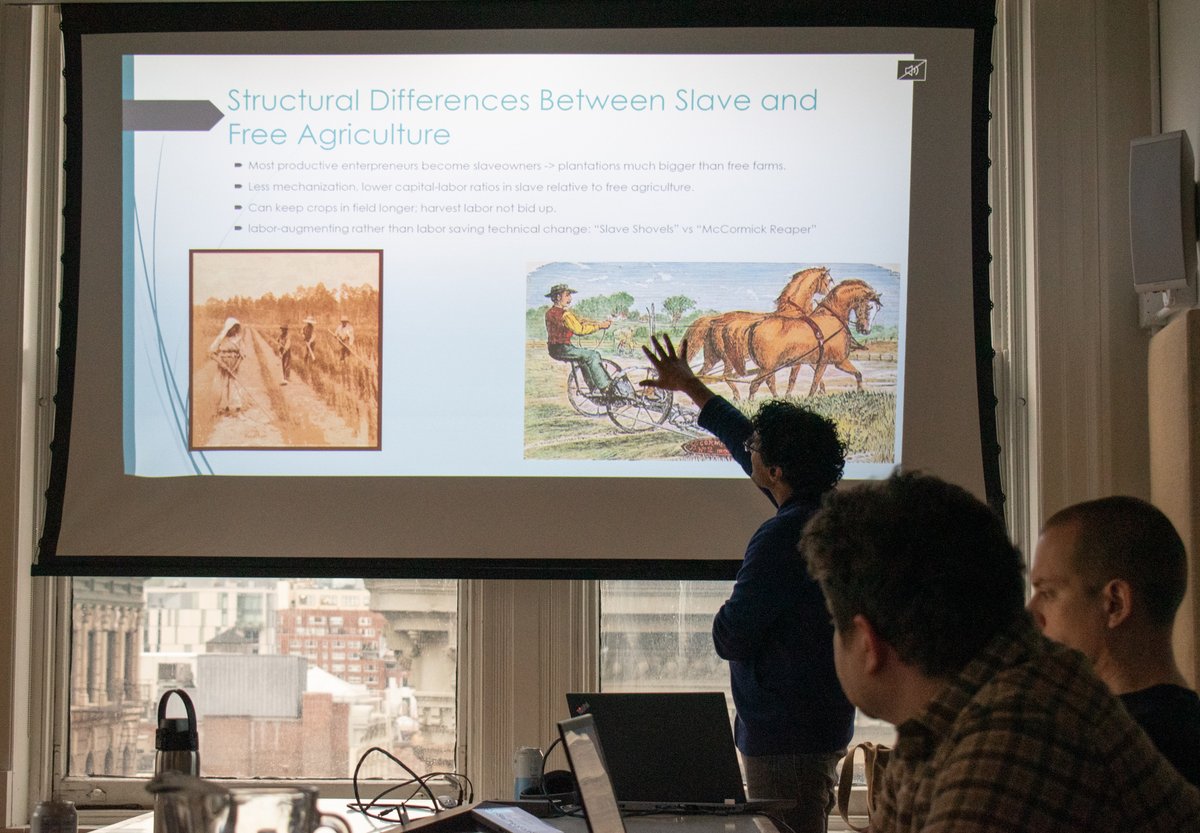"Terms of Service: Labor Market Power from American Slavery to Amazon Mechanical Turk."
a brief overdue summary thread/

One implication of firm control over wages: they're between 50% to 20% below marginal product.
E.g. recent survey work with Walmart employees shows that a somewhat higher wage increases the chance they'll quit, less than a shorter commute.
Put another way: Laissez faire markets just produce monopsony.
"Markets for free labor have a universal characteristic—employer power over wages and employment—that distinguishes it from, say, the simple supply-and-demand logic of the market for carrots."
Unions cut precisely into the margins you’d want/expect an anti-monopsony force to cut into: increased labor share; lower top 10% share; lower wage inequality.
"While we wait for mass mobilization, maybe we can work—J-PAL style—in improving what unions already do."








